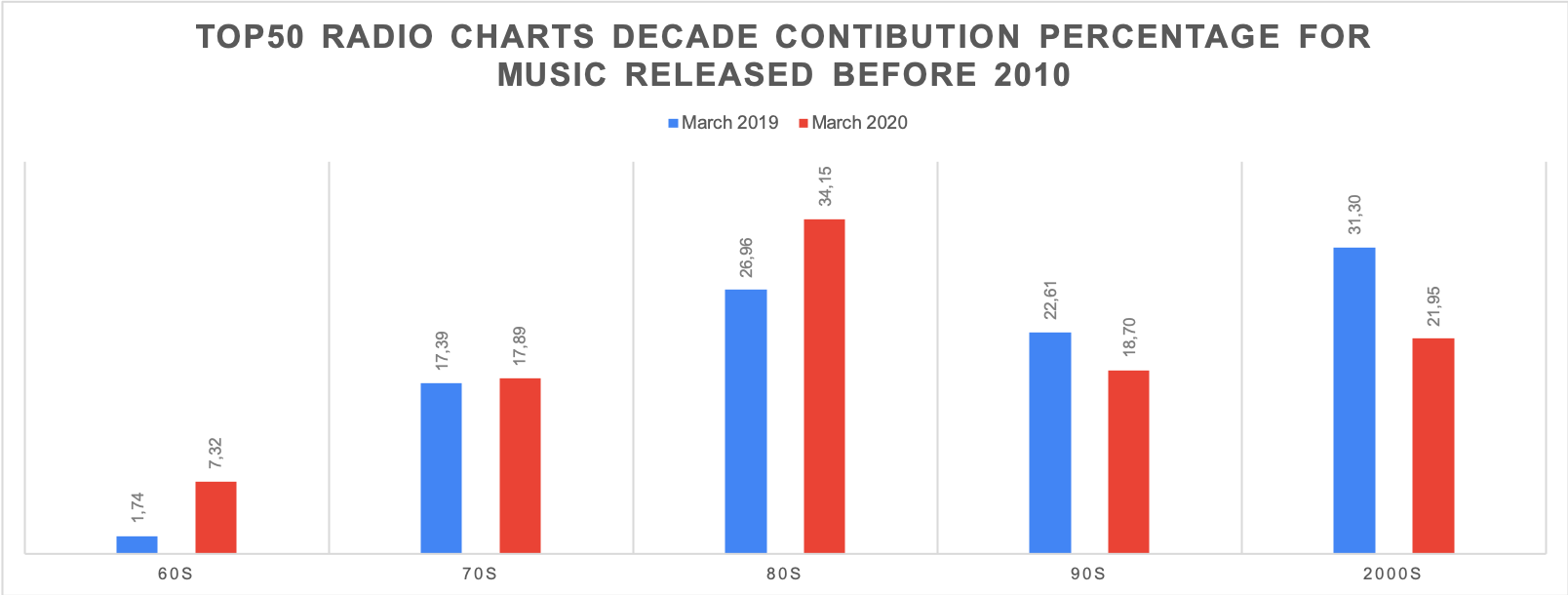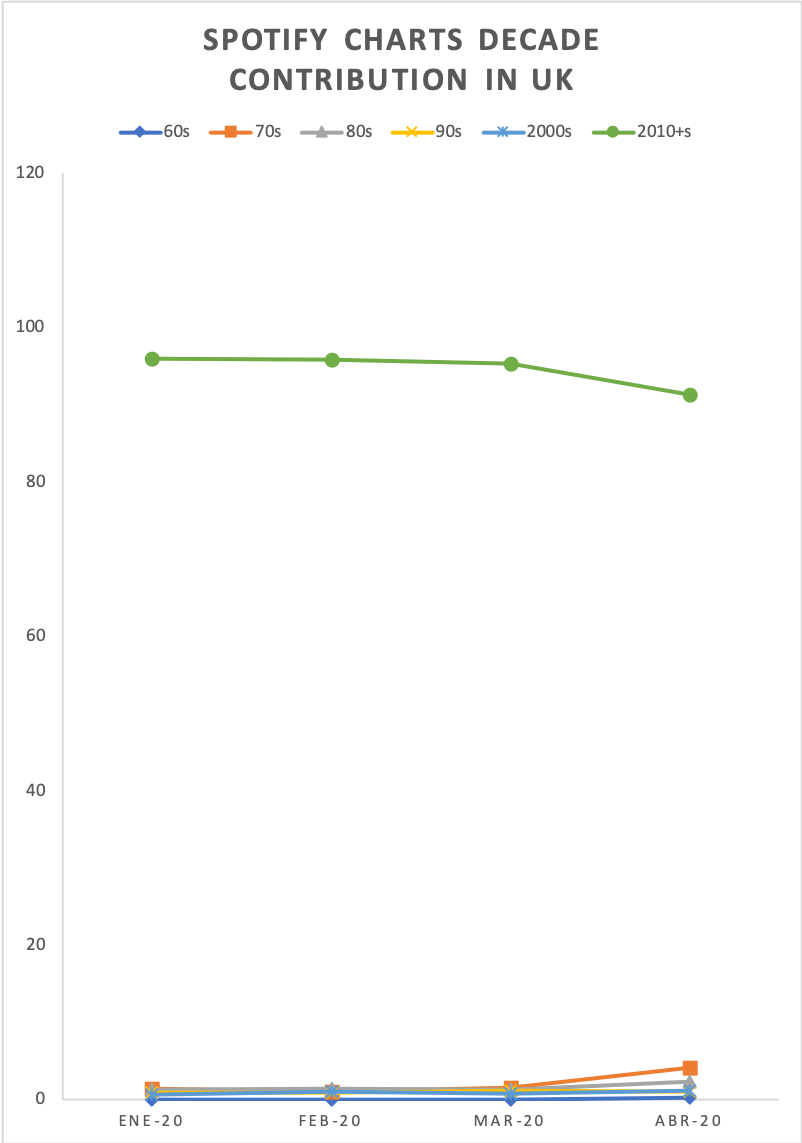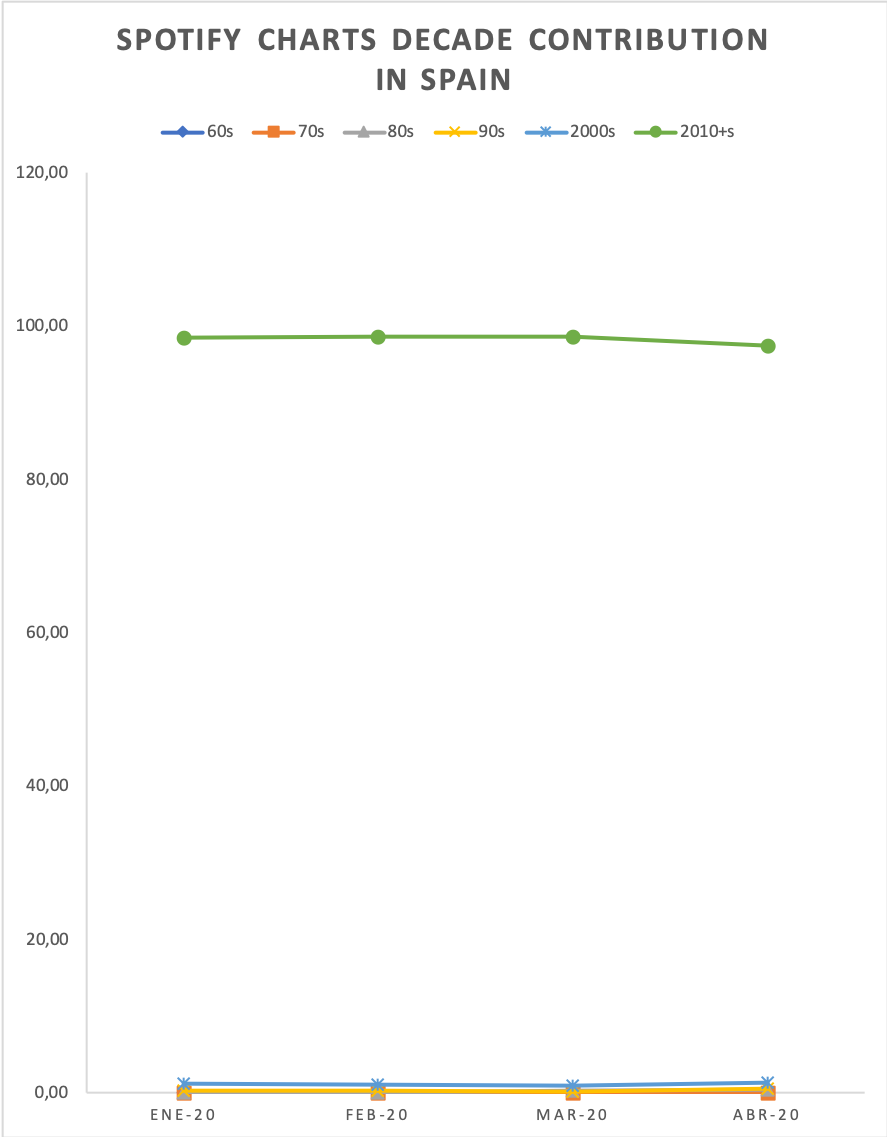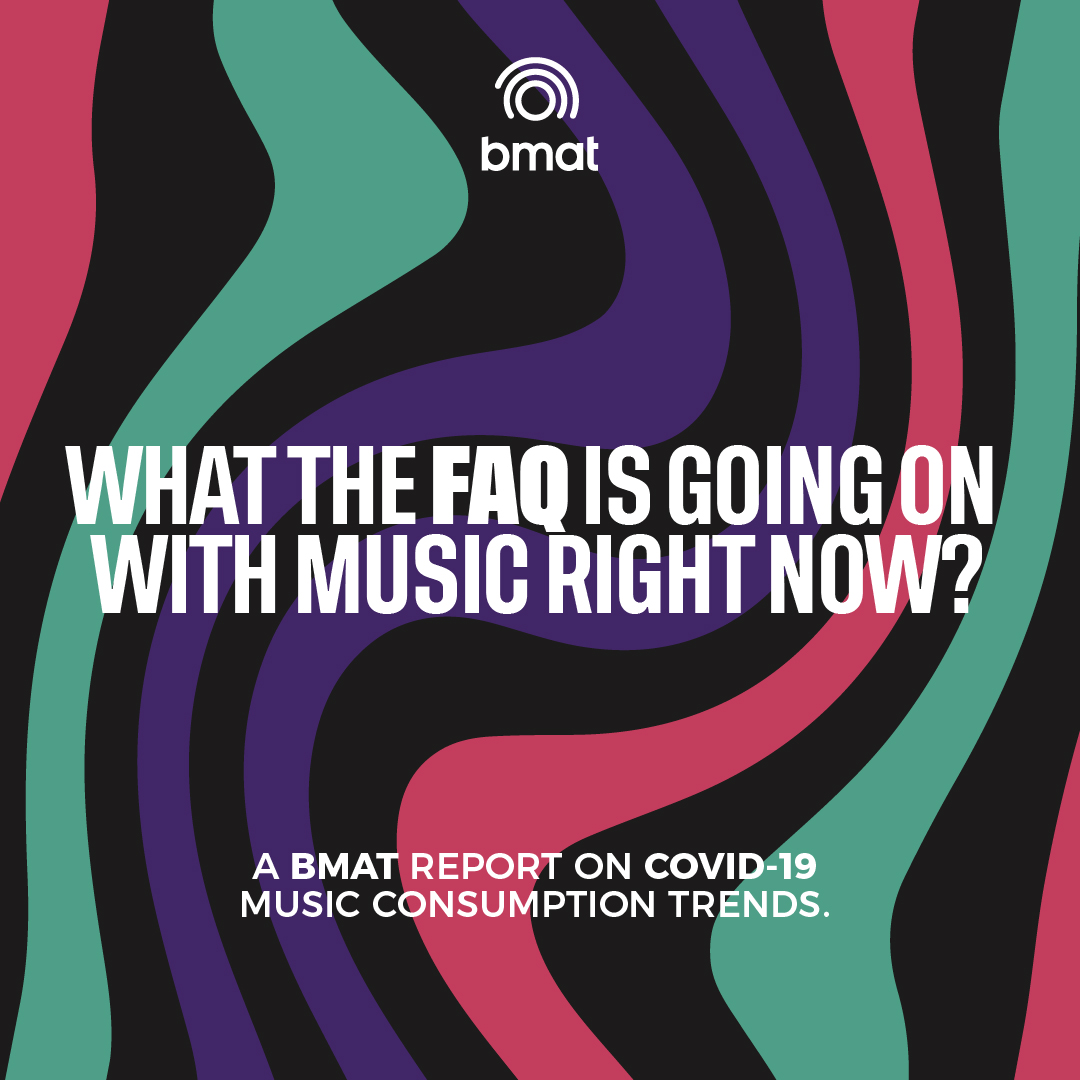There’s a basic human tendency to seek out comfort in the familiar. It turns out, old songs are to our ears as Grandma’s comfort foods are to our taste buds.
Starting with radios, we first looked into the top 50 songs played across 16 countries. For each country, radio stations were selected by audience, typically grouping the dozen radios with the highest audiences.
‘Music released after 2010’ accounts for 74% to 98% of the top 50 most played songs almost everywhere except Argentina and Japan, where ‘Music released after 2010’ represents as low as 42% and 60% respectively. The second most popular decade in Argentina is the 80s with 32% and in Japan the 2000s, with 20%. In short, most countries play vastly more modern music than oldies.
During the pandemic, we took a closer look at how songs released before 2010 were doing across the Top50 radio charts of the UK, Germany, France, Italy, Spain, Netherlands, Denmark, Sweden, Norway, Brazil, Argentina, Canada and Japan. Beneath the preponderance of what we could call ‘contemporary’ music, we observe radio stations are programming more 60s and 80s, and less 90s and 2000s.


“Radios are currently playing more 60s and 80s, less 90s and 2000s. Still, music released after 2010 typically accounts for more than 80% of the top 50 played songs.”

Going digital, we looked into which year the songs charting on Spotify were released. Seeing as 98% on average of streamed music in the charts nowadays has a release date of after 2010, we instead looked closely at the other 2% – the older songs – to see how they were holding up their own in the charts these days.
We looked at how many individual tracks with a pre-2010 release date had made it into the charts, and saw that numbers in March and April had dropped from 2019 to 2020. We were surprised, considering we’d already seen radios programming more oldies since the start of the pandemic.
“The UK and Spain are favouring listening to the same older songs more frequently.”
Although a lower number of individual old tracks made the charts in 2020, the frequency they entered the chart, and therefore their number of streams, during April stayed almost the same as the previous year. The same amount of streams distributed across less tracks means Brits are now favouring repetition over variety for older songs.


When compared to 2019, the people of Spain consistently listen to less variety of older songs in January, Feb and March of 2020, except where we see it almost double in April. Similarly to the UK, the number of streams show they too are favouring listening to the same older songs more frequently.
“After lockdown, the amount of music released before 2010 rose, going from making up 4.2% to 8.7% of all music in the UK charts.”
Stepping back to take a broader view, we see that music with a release date after 2010 made up 95.8% throughout the first couple of months of the year, and that gradually drops right after lockdown in the UK was announced on the 23rd of March. After that date, the amount of music released before 2010 rose, going from making up 4.2% to 8.7% of all music in the charts. Spain, despite beginning lockdown a week before the UK, shows much less alteration.
This overall percentage increase of the pre-2010 music being streamed showed us that people were indeed turning to oldies for comfort, albeit less variety of them.
Written by Kelly, Head of Content Strategy
If you enjoyed this snippet, keeping reading our full report on COVID-19 music consumption during the pandemic.
Latest articles
September 10, 2024
What to do when AI crashes into your party
On the 1st of August 2024, the EU AI Act, unanimously approved on May 21, 2024, came into effect, delivering the world’s first AI law which clearly calls for the need for AI companies [...]
July 11, 2024
Decoding voice cloning and recognition – an AI introspective
Ethical concerns emerge around the extent of manipulation and the privacy implications involved in the advancing use of voice data. The riddle we're tackling is whether the evolving use of [...]
May 15, 2024
Partnering with Voice-Swap to establish a certification program to verify datasets used in AI music models
Ethical voice cloning platform Voice-Swap and BMAT have forged a groundbreaking partnership to establish a certification program for AI music models. The certification will harness the powe [...]
